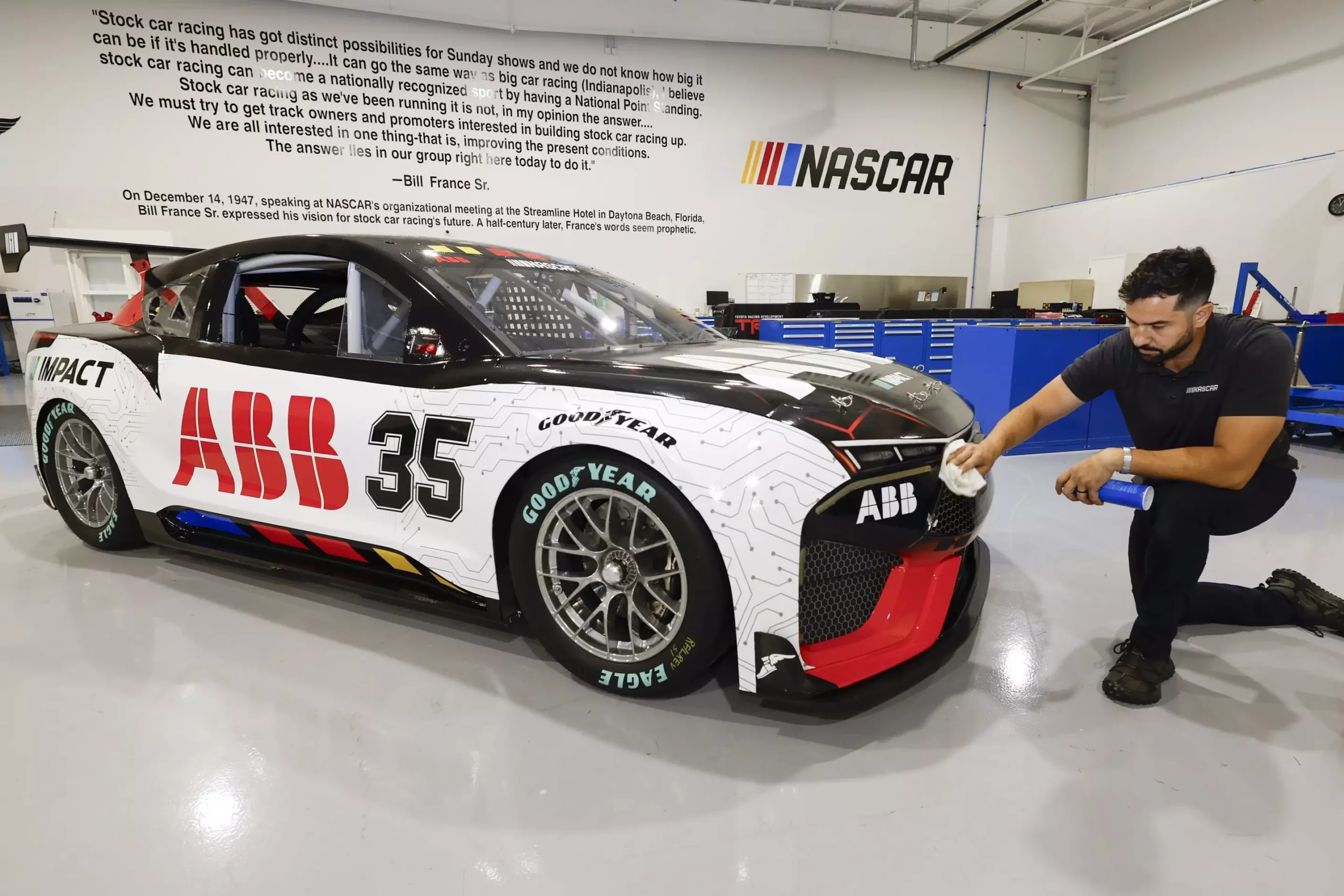The recent unveiling of NASCAR’s first electric racecar in downtown Chicago marked a significant turning point in the world of motorsports. While traditional NASCAR races are characterized by the thunderous roar of gasoline-powered engines, this new electric racecar offers a different experience. The electric racecar, developed in partnership with Chevrolet, Ford, Toyota, and the electrification company ABB, aims to showcase high-performance electric vehicles and gauge fan interest in electric racing.
NASCAR is vying to position electric vehicles as not only environmentally friendly but also as cool, fun, and accessible to fans. This initiative is spearheaded by Riley Nelson, NASCAR’s head of sustainability, who believes that the future of racing lies in electrification. The electric racecar, priced at $1.5 million, represents a significant investment in the shift towards sustainable racing practices.
The prototype electric racecar, driven by semi-retired NASCAR driver David Ragan, offers an exhilarating experience on the racetrack. Ragan’s firsthand account emphasized the unique aspects of driving an electric racecar – from the lack of engine noise to the absence of exhaust fumes. While the electric racecar accelerates faster and stops more efficiently than its gasoline-powered counterparts, it faces challenges in taking corners due to its heavier build.
Eric Warren, who heads global motorsports competition for General Motors, highlighted the importance of engaging NASCAR fans in the realm of electric vehicles. Market research has shown that over half of avid NASCAR fans would be more inclined to purchase an electric vehicle if exposed to it through racing. NASCAR’s foray into electric racing serves as a platform for educating fans about energy optimization and sustainability.
In response to the environmental impact of traditional racing practices, NASCAR has embarked on a sustainability plan that includes partnering with ABB as its official electrification partner. ABB will facilitate the transition to renewable energy sources and install electric vehicle charging stations at NASCAR tracks across the U.S. By 2028, NASCAR aims to introduce sustainable racing fuel and incorporate recycling practices at all events.
The shift towards electric racing is not unique to NASCAR, as other motorsports organizations like Formula E have already established themselves in the realm of electric car racing. NASCAR’s commitment to sustainability extends beyond electric racing, with plans to explore racing with hydrogen-powered cars and implement hybrid engines in partnership with IMSA.
Impact on the Racing Industry and Beyond
The introduction of electric racecars in NASCAR represents a milestone in the evolution of motorsports. As consumer interest in electric vehicles grows, racing fans and enthusiasts are eager to witness the future of racing unfold. With advancements in electric vehicle technology and a focus on sustainability, NASCAR is poised to reinvent the fan experience and shape the future of racing for generations to come.


Leave a Reply